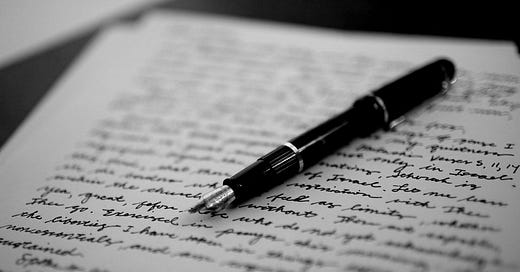By Kirin Lawrence, Eleanor Roosevelt High School ‘23
In what ways does Starr’s journey relate to your own growth in awareness?
Throughout this book, the character Starr tackles a significant aspect of Police Brutality cases. For each of the recent real-life instances of villainy by law enforcers that have been made public (the killing of George Floyd, Breonna Taylor, Philando Castille, Daniel Prude, etc.), Police departments and Right-wing media have used background information on the victims to justify the actions of the cop criminals. This happened to Khalil. Although Khalil and Starr were only pulled over for having a broken taillight and Kahlil was shot as a result of stepping up to the driver’s side door, throughout the novel most of the conversations about him revolved around whether or not he sold drugs. Drug dealing does not make someone’s life worthless. It does not justify their murder. And One Fifteen had no valid reason to believe that Kahlil was dealing on the night of his death. As Starr’s uncle Carlos, puts it “I hate that I let myself fall into that mindset of trying to rationalize his death. At the end of the day, you don’t kill someone for opening a car door.” (Page 256)
When information to manipulate the recent cases of Police Brutality has been released, I have learned to be aware of its purpose (the benefit of the cops) and to research whether or not said information had any affect on the event itself. I have also learned to assume there is more behind the covers; that not everything is as black and white as the news can portray it. And that if everything were known we would all see things differently, similarly to how discovering Kahlil’s motives for dealing changed Starr’s perception of him.
The Hate U Give explores a multitude of characters and perspectives that break stereotypes and assumptions. In addition to Starr, what other character(s) do you connect to and why?
In addition to Starr, I felt like I could connect with Seven. I can’t relate to his experiences or even his character, but I admire his loyalty to both of his families and his love and care for all four of his siblings. Seven’s relationship with his mother was strained and painful. Her decisions and relationship with King were really harmful to her children, but despite this fact, when she was in harm’s way, Seven was willing to risk everything to save her. “I’m supposed to protect her!” (Page 386).
What historical and world connections can you make to the key that moved you? How does this book clearly illustrate the results of the policies of our government and the racism in our American culture?
The Hate U Give was published in 2017. On May 25, 2020, George Floyd was murdered in broad daylight by Minneapolis cops and the world saw yet another “Kahlil” dead on the street. Everything that has followed has done so in-line with the movement that Angela Thomas described in this novel, the movement that has been ongoing for decades, the movement that we see all around us, the fight for social justice. Just as they did in T.H.U.G, the government has responded to the movement with rule-by-fear tactics, with threats of imprisonment, with tear gas, and curfews, and tanks. “The tank resembles the ones they show on the news when talking about war in the Middle East... A voice booms from the armored vehicle, ‘All persons found violating the curfew will be subject to arrest.’ ” (Page 201) This sort of despicable behavior is used to silence already unheard black voices and the cries of the movement.
How does the book uplift us? What are concrete/specific actions that you can take about systemic and cultural racism in our country and local community?
The Hate U Give doesn’t have much of a happy ending. “ ‘If you’re just tuning in, the grand jury has decided not to indict Officer Brian Cruise Jr. in the death of Kahlil Harris.’ ” (Page 387) There is no justice for Kahlil, or maybe we are to decide that for ourselves. Maybe all the public attention caused a second trial and One Fifteen was arrested. I find that unlikely.
Eric Garner was killed on July 17, 2014, and since then his name has often been used when talking about the blatant violence of U.S Police. However, to this day the officer responsible for his death has not been charged and the family has been hushed quiet with money instead of justice. We have no control over what transpires within the pages of T.H.U.G. We can not seek justice for a fictional character, but every day others like him die at the hands of racist or excessively violent cops. This book is a message to us to try and try again until our “Kahlil’s” murderers face the consequences, even if his did not. On March 13, 2020, a woman went to sleep and never woke up, she did not have to know who took her life from her, the very ones who swore to protect and serve. But we know. Her name is Breonna Taylor and as soon as this week, her case will be brought to the grand jury. Protest, sign petitions, donate, call law officials, spread her story.
Say her name.



